Student Blog
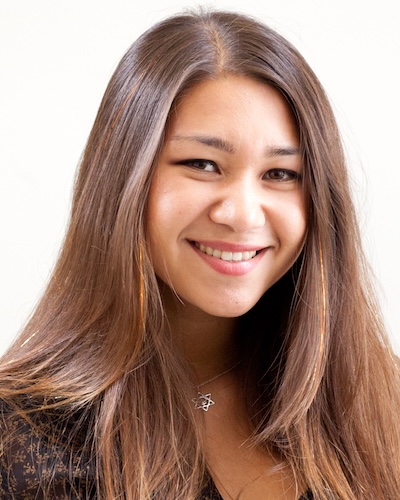
Ellen Loves Occupational Therapy ⟩
January 12, 2016, by Ariel
Hey guess what! Ellen Degeneres gave a shout out (and a whole lotta love) to occupational therapy on her talk show the other day.
Meet Ashlyn: Ashlyn works as an occupational therapist in one of the nation’s most poverty-stricken counties, and is making an amazing difference with her positive energy and generous spirit.
”. . . these kids make it so worthwhile. The best part of my job would have to be helping these kids and putting a smile on their face, knowing that I’m helping and making a difference. That is the most amazing thing.”
Happy Tuesday everyone!
⋯

Hellooo Electives! ⟩
January 12, 2016, by Ariel
Aaaand we’re back! Everyone’s getting back into the swing of things now that winter break is over. For second year students, this means ELECTIVES! For our final semester, we’re given the opportunity to choose classes from the OT department, or even look outside of the department to create our own focus. As an aspiring pediatric occupational therapist, I’ve chosen to take electives that will give me a stronger background in early intervention, sensory integration, and dysphagia. Here’s a little about the elective courses I’ve chosen for this semester.
Early Intervention
In early intervention, we will learn how occupational therapists treat babies and toddlers with developmental delays or disabilities. We’ll be learning how to help children attain brand-new skills ranging from physical, cognitive, communication, social/emotional, and self-help.
Sensory Integration
In our sensory integration courses, we’ll be learning how to help children process sensory information efficiently in order to learn, move, and interact appropriately with their environments. What is sensory integration? The basic principle is that we are constantly receiving sensory information from our environments in the form of sights, smells, sounds, tastes, gravity, etc. All of these different senses must be registering in our brains correctly in order for us to receive the information and respond appropriately (e.g., the pan feels hot, so I will respond by removing my hand). For many of us, this process occurs without us having to even think about it! But for others, integrating the senses is a challenge. For these children, occupational therapists use different types of sensory input to challenge their patients’ nervous systems and help them better process information from their environments. The end goal is for the child to be able to move efficiently, learn, and live a happy and full life!
Dysphagia
In our dysphagia course, we will be learning how to help patients who have difficulty swallowing foods, liquids, or medicine. The inability to swallow negatively impacts overall health, nutrition, and quality of life. Occupational therapists treat patients with dysphagia by using compensatory strategies, encouraging modified diets, introducing patients to adaptive utensils, teaching proper positioning, and providing exercises prior to mealtime that enhance safety and swallowing abilities.
For more information on Electives through the USC OT department, check out our curriculum here!
⋯
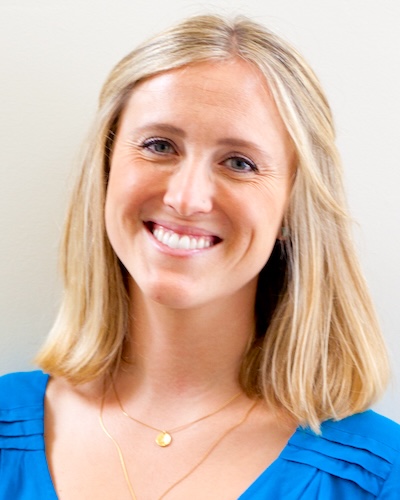
Community Programming and Research ⟩
December 4, 2015, by Heather
On Thursday, the USC Chan Division held their annual poster presentation evening featuring the students’ community programming and research projects. Every student, either individually or in a group, presented their project to the students and faculty.
My group partner and I finished our project that focuses on upper extremity ergonomics and proper body mechanics as it relates to the musician. We created a program that explores the prevention of repetitive motion injuries in musicians, and further investigated psychosocial factors that contribute to the development or exacerbation of musculoskeletal disorders in the musician population. The program was developed into three tiers: pre-season, season, and post-season. We incorporated the expertise of certified hand therapists, and guest lecturers to focus on health, wellness, nutrition, and stress related to performance anxiety.
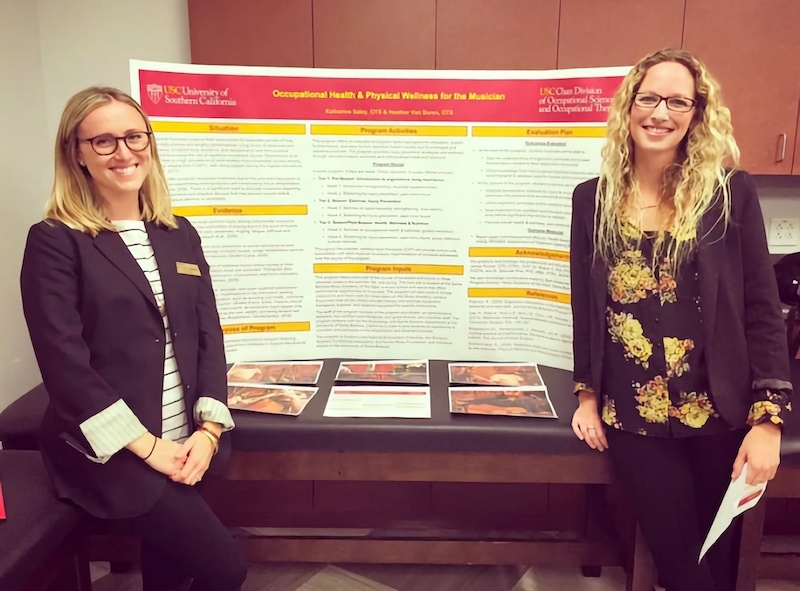
Here are some of the other poster projects from some of our fellow classmates.
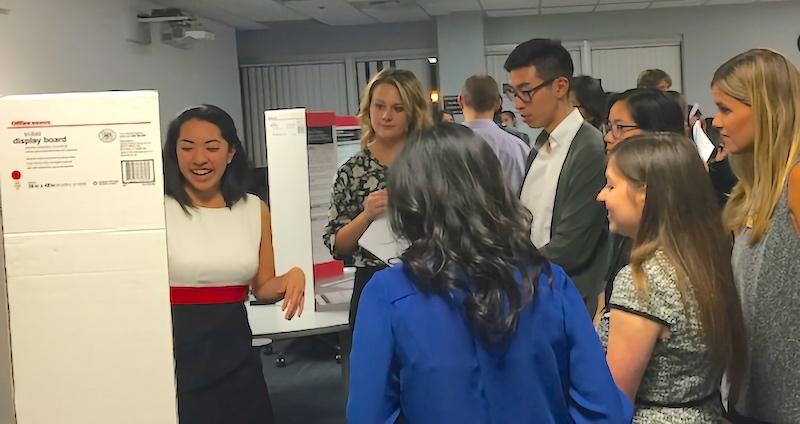
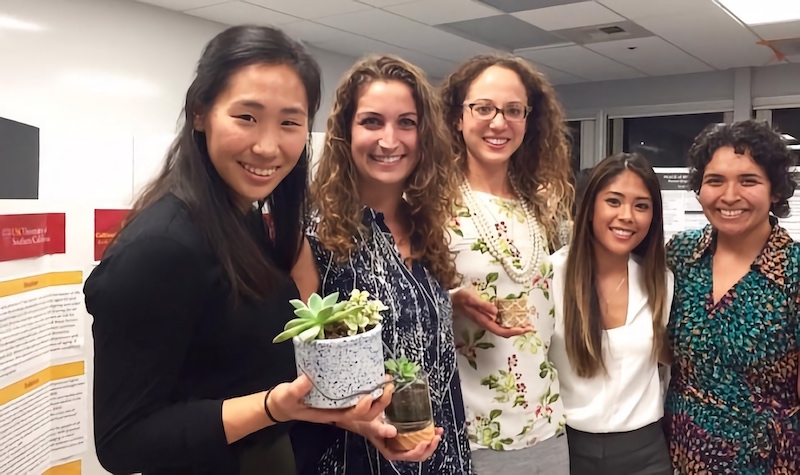
⋯

Just for Kids! ⟩
December 2, 2015, by Heather
This week we had the opportunity to learn more about pediatric splinting. Making a splint is a pretty cool, but making a splint for a kid is even cooler!
Some pediatric hand conditions that might require hand splints include congenital anomalies, neurological disorders, peripheral nerve injuries, and traumatic injuries. These splints may protect the kiddo’s joints, muscles, and tendons depending on their specific condition.
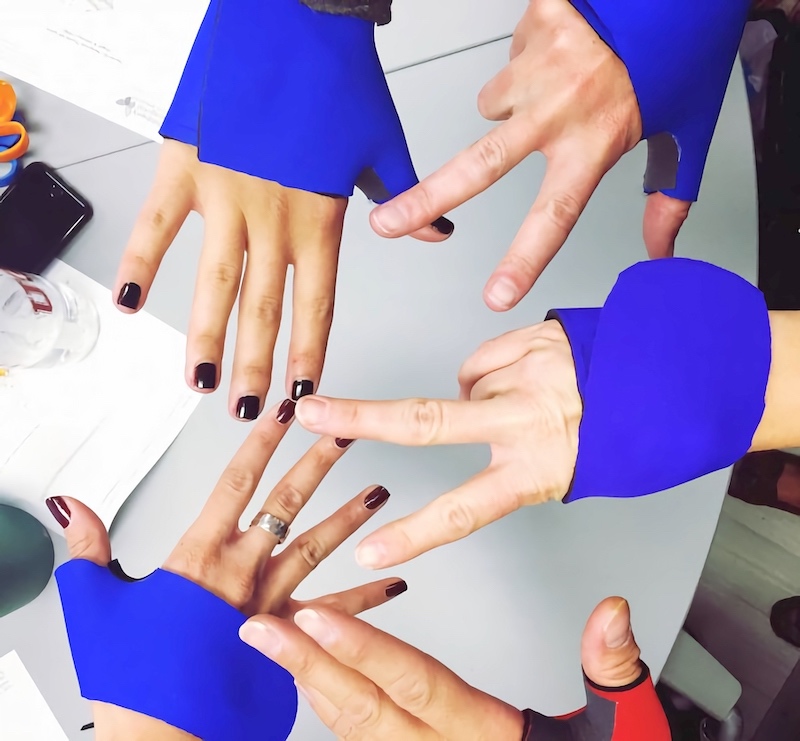
Pediatric splinting
I look forward to learning more about hand anatomy and function when I take the hands elective course next semester!
⋯
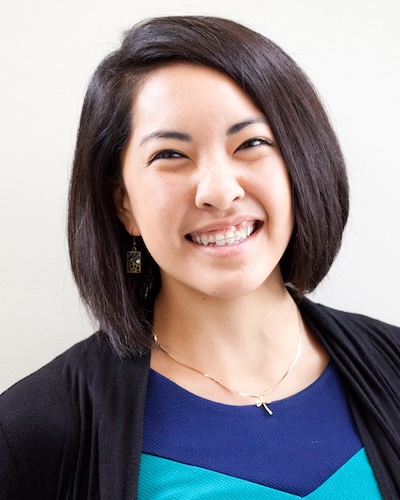
Faculty Mixers! ⟩
December 1, 2015, by Rashelle
Community Getting Involved School/Life Balance
This year for the annual faculty/student mixer series, students were invited to partake in fun events organized by our student council professional development chairs. I was fortunate enough to be available to attend all three of them this year!
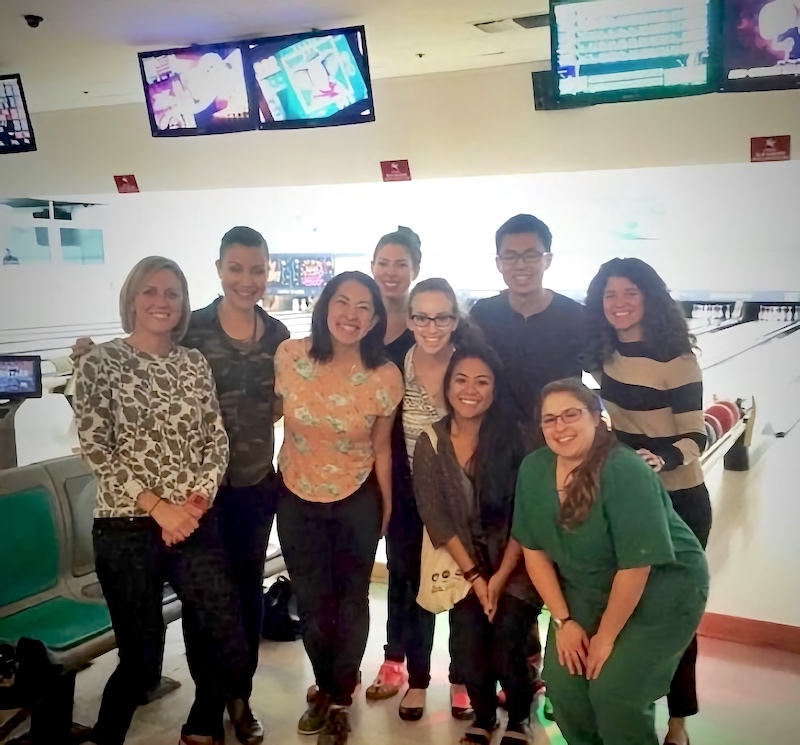
Bowling with Faculty
At the first mixer I got the opportunity to show off my (un)impressive bowling skills with Dr. Myka Persson, a previous professor, Carey Sokol, my past fieldwork coordinator, and Amber Bennett, who coordinated the Career Fair, which I attended the day after. It was awesome to see faculty members in such a fun, informal environment, which really allowed me to get to know them apart from the structured school work and meetings.
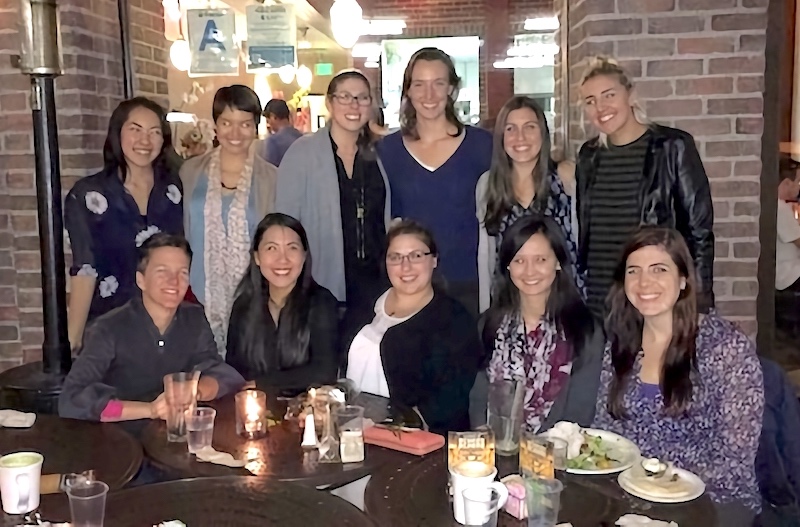
Urth Caffe with Faculty
The second faculty/student mixer was held at Urth caffe with Dr. Karrie Kingsley, one of my favorite professors, along with Dr. Tracy Jalaba and Dr. Lindsey Reeves, who recently completed their doctorate degrees at USC’s distinguished Faculty Practice. It was an honor to sit next to them over dinner, and to hear about their captivating journies of how they got to where they are today.
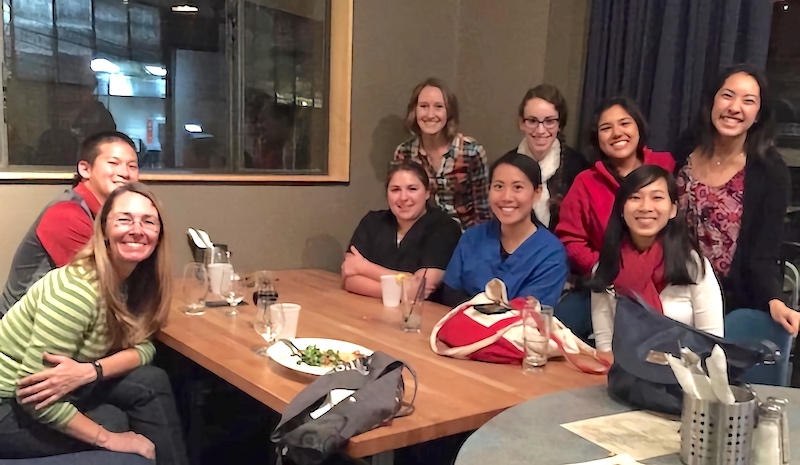
Barbara’s Brewery with Faculty
Lastly, after my final day of fieldwork at the Keck Hospital of USC, I got to celebrate it with, coincidentally, my fieldwork supervisors! Dr. John Margetis and Dr. Kim Lenington are two of USC’s finest clinical faculty, who taught me the ins and outs of how to intensely care for patients in an intensive care unit. If that was too cheesey, it must be from where my mind has drifted after all of those nachos we ate!
These intimate gatherings truly made me feel welcomed into the Trojan Family. Not only will I feel less intimidated when approaching these faculty members in the future, but also I was able to connect with first year students, who may have been intimidated by me! Every day, with every new person I meet, I see how large this network of Trojans is, and how supportive and encouraging they can be as we go through this journey together.
⋯





